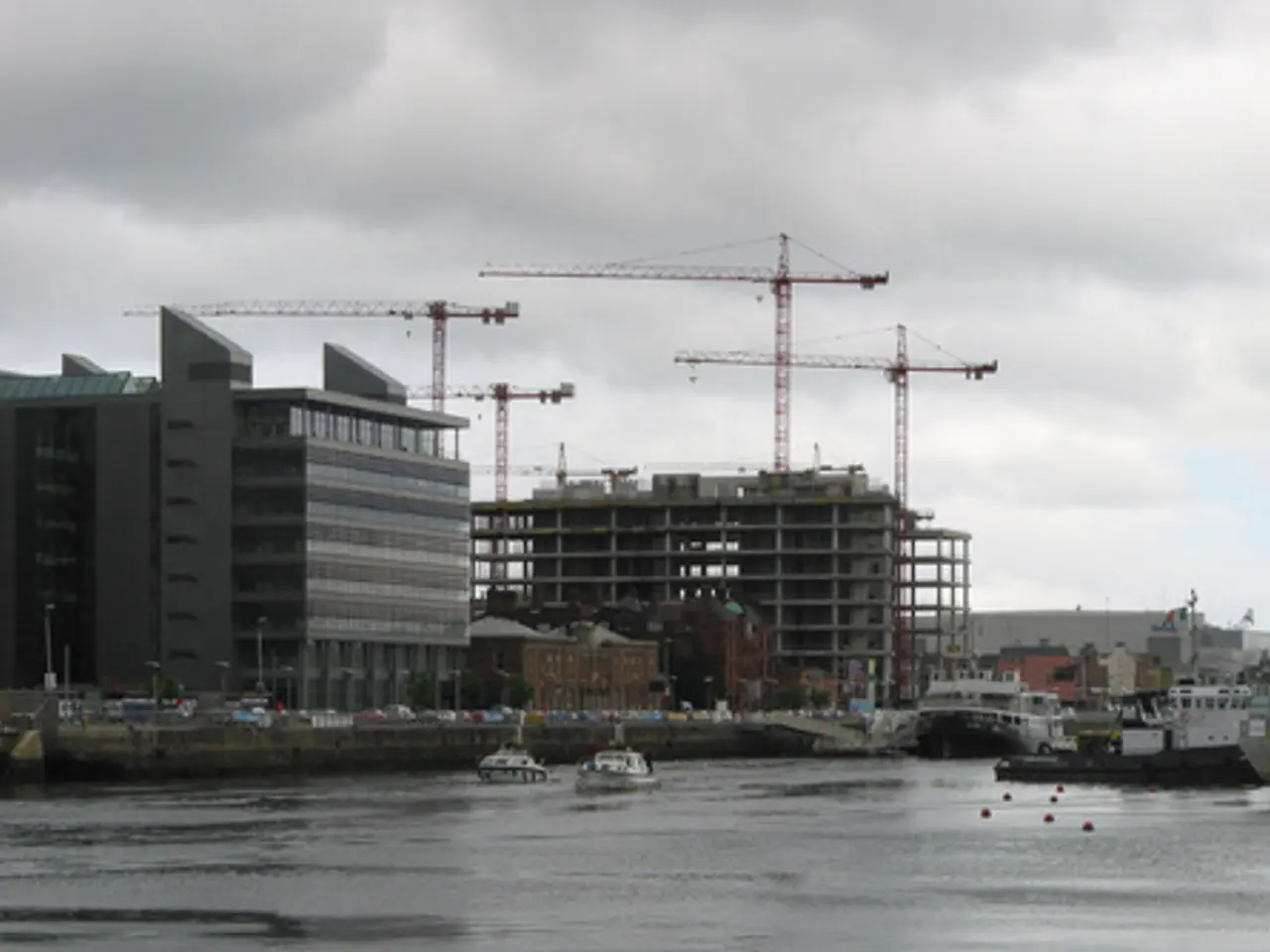Egypt's ongoing battle for water supplies
The Horn of Africa region is experiencing a surge of political and geopolitical tensions, with the ongoing conflict in the area potentially having far-reaching consequences. One of the key issues at the heart of this conflict is the Grand Ethiopian Renaissance Dam (GERD), Africa's largest hydropower project, operated by the Ethiopian Electric Power.
On June 3, the Ethiopian government announced the completion of the construction of the GERD, marking a significant milestone in the project's history. However, the dam's operation remains a contentious issue, with Egypt and Sudan expressing concerns over its potential impact on their water security.
Egypt, which depends on the Nile River for 97% of its freshwater, views the GERD as a direct threat. Egyptian authorities have issued stern warnings against unilateral actions by Ethiopia, asserting they will take measures grounded in international law to protect their water interests. Cairo rejects Ethiopia’s approach as violating international law and views the negotiations as having reached a dead end.
Ethiopia, on the other hand, presents the GERD as a symbol of economic sovereignty and a shared regional opportunity. The country insists that the dam will have no impact on "downstream countries." However, Egypt's Prime Minister Mostafa Madbouly has stated that Ethiopia's unilateral approach to the Blue Nile contradicts international law and cooperation principles.
Negotiations between Egypt and Ethiopia over the GERD are currently at an impasse, with no binding agreement reached on the dam’s filling and operation. Ethiopia has proceeded with its official inauguration scheduled for September 2025, moving forward unilaterally despite continued objections from Egypt and Sudan.
The potential conflict in the Horn of Africa could further complicate negotiations over a fair distribution of water resources between Ethiopia, Egypt, and Sudan. The dispute remains a key geopolitical fault line in the Nile Basin, with significant potential impacts on downstream countries, especially Egypt and Sudan, whose water supplies and agricultural economies are at risk if the dam’s operation does not consider their concerns.
The Horn of Africa conflict could also have implications for the stability of the Nile Basin Commission, which has faced resistance from Cairo and Khartum. The commission, established by riparian states except Egypt and Sudan in 2024 to strive for a fairer distribution of Nile water, could be further destabilised by the ongoing tensions.
Moreover, the conflict in the Horn of Africa could lead to higher oil prices due to the oil fields located in South Sudan and Yemen. Additionally, a potential humanitarian crisis and refugee wave that could spill over into the Eastern Mediterranean could affect Greece and Italy, as well as other European countries whose ports disproportionately benefit from trade with Asia.
The situation in the Horn of Africa is a complex web of geopolitical tensions and potential conflicts. The ongoing dispute over the GERD is a key aspect of this web, with significant implications for the region and beyond. As negotiations continue, it is crucial that all parties work towards a peaceful resolution that considers the concerns of all riparian states and ensures the sustainable management of the Nile's water resources.
[1] JF issue 34/25 [2] The Egyptian Gazette [3] Al-Ahram [4] Ethiopian Electric Power [5] Reuters
- The operation of the Grand Ethiopian Renaissance Dam (GERD), a significant milestone in environmental-science and science, remains a contentious issue, causing geopolitical tensions in the Horn of Africa region.
- The potential implications of the GERD's operation extend beyond the region, with climate-change and general-news outlets like Reuters reporting that a potential humanitarian crisis and refugee wave could affect countries in the Eastern Mediterranean.
- In the realm of politics, Egypt and Ethiopia continue to disagree over the dam's filling and operation, with Egypt's Prime Minister Mostafa Madbouly asserting that Ethiopia's unilateral approach contravenes international law.
- Meanwhile, war-and-conflicts and crime-and-justice issues in the Horn of Africa could also have unintended consequences, such as higher oil prices due to the oil fields located in South Sudan and Yemen.







